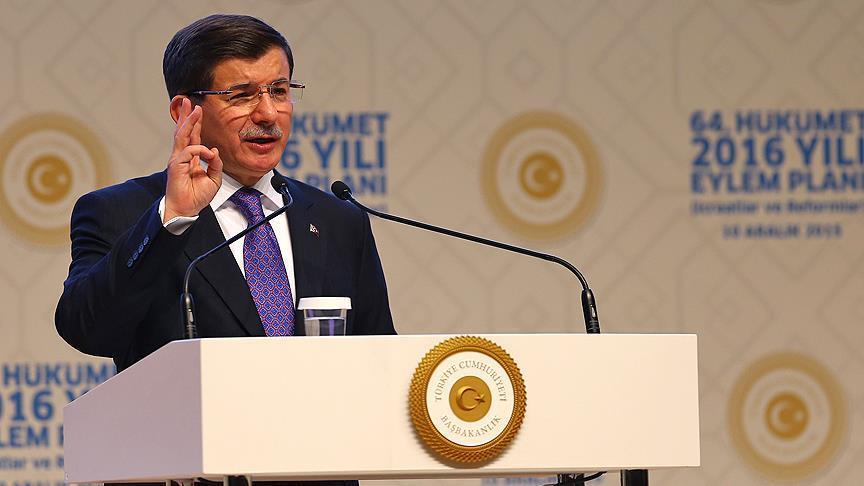
Ankara
ANKARA
Turkish Prime Minister Ahmet Davutoglu has said that cemevis -- Alevi places of worship -- will be granted legal status.
This new status for Alevi religious buildings is just one part of the 64th government’s action plan, presented to members of the ruling party in the Turkish capital Ankara by Davutoglu on Thursday.
The exact size of the Alevi population in Turkey is not known, but they constitute the second-largest religious community in the country after Sunni Muslims.
Traditional religious, cultural schools and cemevis will be granted legal status, Davutoglu confirmed, promising that the government will work also on solving the “problems of our Roma citizens”.
Davutoglu said that the legislation remaining from Turkey’s coup periods would be revised and that anti-democratic provisions would be removed.
The Turkish premier also called on all party leaders in Turkey to come together and “deposit to history” the constitution left over from the country’s military coups.
Turkey has had four military takeovers since 1960; the last episode was in 1997.
“In its place, let us together compile a modern, democratic, liberal constitution, which all would be proud of,” Davutoglu said.
The constitution compiled by the coup administration of Sept. 12, 1980, is still in force in Turkey. A new constitution remains one of the leading promises made by the ruling Justice and Development (AK) Party in the Nov. 1 general election.
Davutoglu also said that an ideal on-remand time for people facing prosecution would be fixed, vowing that there will be no more “trial processes lasting for years”.
To do this, regional courts of justice would be established within six months, Davutoglu said, to act as an intermediate recourse between courts of first instance and Turkey's Supreme Court, thereby decreasing the workload of the latter and expediting the trial process.
He vowed that the government would implement promises made to citizens ahead of the Nov.1 general election "within three months".
Davutoglu also said that a new Reform Coordination and Monitoring Board would be established to oversee the implementation of these commitments.


